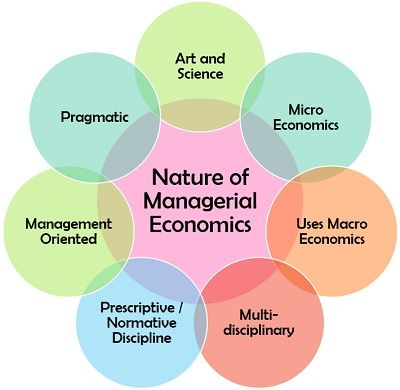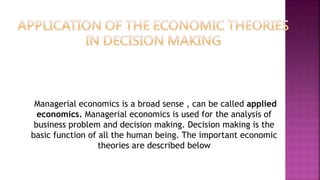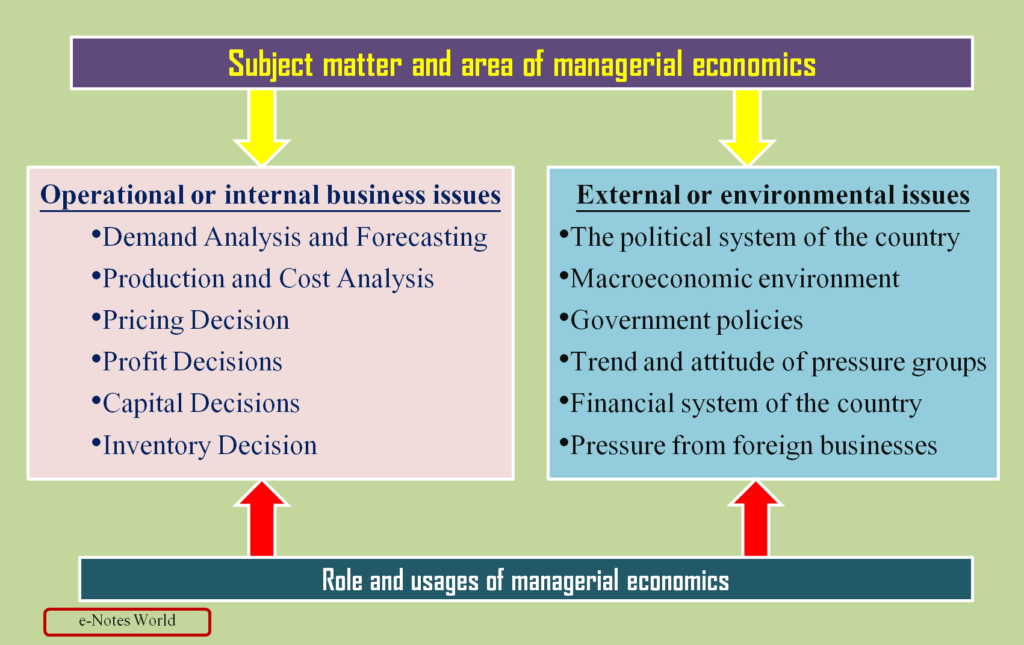Economics is the study of how individuals, businesses, and societies choose to allocate their limited resources in order to satisfy their wants and needs. At its core, economics is concerned with the production, distribution, and consumption of goods and services, and how these activities are influenced by the interactions of buyers and sellers in markets.
Managerial economics, also known as business economics, is a branch of economics that applies economic theory and methods to the decision-making process of businesses. It helps managers understand how economic principles and analysis can be used to make better business decisions.
One of the key principles of economics is the concept of opportunity cost, which refers to the value of the next best alternative that is given up when a decision is made. This concept is important for businesses because it helps managers understand the trade-offs that are involved in making different choices. For example, a business may have the opportunity to invest in a new piece of equipment, but in order to do so, it will need to forego other potential investments or uses of those funds. Understanding the opportunity cost of different decisions can help managers make more informed and strategic choices.
Another important concept in economics is supply and demand, which refers to the relationship between the quantity of a good or service that is available and the quantity that consumers are willing to purchase at a given price. When the supply of a good or service exceeds the demand, prices tend to fall, while when the demand exceeds the supply, prices tend to rise. This relationship is important for businesses because it helps them understand how changes in supply and demand can affect the price of their products and services, and how they can use pricing strategies to increase profits.
In addition to these fundamental concepts, managerial economics also includes tools and techniques for analyzing data and making informed decisions. This includes statistical analysis, forecasting, and cost-benefit analysis, which helps managers evaluate the costs and benefits of different courses of action.
Overall, economics and managerial economics are important disciplines that help individuals, businesses, and societies understand how to make the most of their limited resources. By applying economic principles and analysis to decision-making, managers can make more informed and strategic choices that contribute to the success of their organizations.
What is Economics? What Is managerial Economics? What is Demand? What is demand Curve? What is Supply?What is Economics? What Is managerial Economics? What is Demand? What is demand Curve? What is Supply?

Other instructors may wish to use locked resources for assessment purposes and their usefulness is undermined when the source files for example, solution manuals or test banks are shared online or via social networks. The main production activities in a traditional economy include farming, pastoral activities, and hunting. Managerial economics is based on both microeconomics and macroeconomics, whereas traditional economics refers to the concept of economics that is more traditional and primitive in nature. Countries with such traditional economic systems include Papua New Guinea, South America, parts of Africa and rural areas in Asia. The main difference between Economics and Managerial Economics is that economics deals with only the economic aspects of a problem whereas the latter, deal with economic as well as non-economic aspects of that problem for decision making. Main Task In it, the fulfillment of the needs of individuals, as well as entities, is the main task.
Managerial economics problem solving approach

Analysis Involved It includes the analysis of macro-level issues like growth, inflation, and employment, etc. Managerial economics helps managers decide which products to produce, how much to produce, what prices will determine, and what channels to use in sales and distribution. In it, some assumptions become invalid when applied. It involves proper decision-making as its main task. It is very difficult to teach more students in a personal touch.
Difference Between Economics and Managerial Economics

And, its development is done in undeveloped and less technologically advanced economies. In countries with such traditional economic systems, Papua New Guinea, South America, parts of Africa, and the rural areas of Asia are including. It includes the analysis of micro-level issues like demand, supply, and profit, etc. We understand the tight schedule that students have in a bid to make ends meet, and we are here to ensure that you have an easy sail in your academic voyage. It is a broad field that offers numerous specialisations such as microeconomics, macroeconomics, econometrics, and international economics. Character It is microeconomic as well as macroeconomic in character. Its analysis of problems is micro in nature, whereas Economics analyzes problems both from the micro and macro point of view.
Managerial Economics and Organizational Sciences Major

The upcoming discussion will help you to differentiate between traditional and managerial economics. Government and managerial policy. What Is managerial Economics? The major thus serves the purpose of deep exposure to the field of management, within the framework of a broad liberal arts education. Managerial economics makes the use of mathematics, statistics, management theories, economic data and modelling techniques in order to help business managers to carry out their operations with maximum efficiency. Managerial economics uses mathematics, statistics, management theory, economic data, and modeling techniques to help business managers manage their operations with maximum efficiency.






